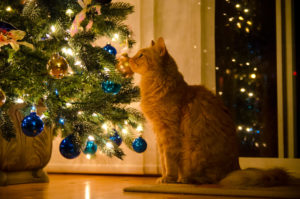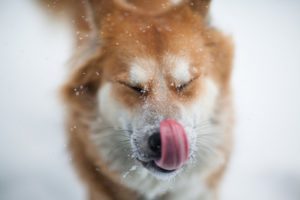
In addition to wishing everyone a Happy Valentine’s Day to both you and your pets, we have some exciting news to share with you!
 | Puppies, Puppies and More Puppies!Tim and Lynda Ireland have agreed to be the first Canine Support Teams (CST) Puppy Raiser family in PA. They got the delivery of not one but two puppies Tuesday. Both dogs will live with them for the next 18 months. They are responsible for basic obedience along with an exhaustive list of experiences to expose both puppies to. At the end of the 18 months, the service dog will go on to intensive CST training and the Ambassador puppy will stay in Newtown with the Irelands to spread the word about CST’s approach and the role service dogs can play in people’s lives.CST is a unique training program that combines puppy raisers, dog trainers and their Prison Pup Program to socialize and train a dog to meet the unique needs of a specific client. This program has won numerous awards and continues to expand the disabilities it can support. For more information, go to www://caninesupportteams.orgWE NEED YOUR HELP! The Ambassoador puppy has been named Maverick. If you would like to help us name the service puppy go to https://www.surveymonkey.com/r/5NFNJ7H or drop your vote in at our Front Desk. Deadline for all voting is Friday, February 21st!Name Choices are:1 Dorian (gold in Greek) 2 Dillon (Ray of Hope) 3 Liam (Protector/Defender) 4 MacGyver (Helper, Problem Solver) 5 Beacon (Light Guide) |
| Trenton Thunder’s Newest Bat Dog In other puppy news, the Trenton Thunder introduced their newest bat dog Wednesday after an appointment with Dr. Ireland, along with his 8 brothers and sisters.The puppy is ready to go and will make hsi first appearances at the ballpark this summer. For more information see the links below and to cast your vot for the newest Bat Dog’s name.https://www.milb.com/trenton/news/thunder-welcome-next-generation-of-bat-dog-tradition/c-312748982https://www.youtube.com/watch?v=Tk-dJJd418o&feature=youtu.be |  |
 | Hospital Observation AKA BoardingWe’ve heard you! We have new and improved registration paperwork for any pet staying with us and are happy to announce an expansion of our Spa Services to include a variety of specialty baths/conditioners and even some Par-fumes on request. Why not spoil your pet on their next visit? |
| February is National Pet Dental MonthThere is limited availablity left for dental cleanings this month which all recieve $50 off! If you need pre-op bloodwork, please get that scheduled at the same time as you are confirming a surgery appointment. As an AAHA accredited veterinary hospital, all Newtown Vet dental cleanings are completed under anesthesia in keeping wth the American Animal Hospital Assoications standards of care. Visit the American Animal Hospital Association website to read their guidleines for the best dental care. |





 Holiday Lights
Holiday Lights
